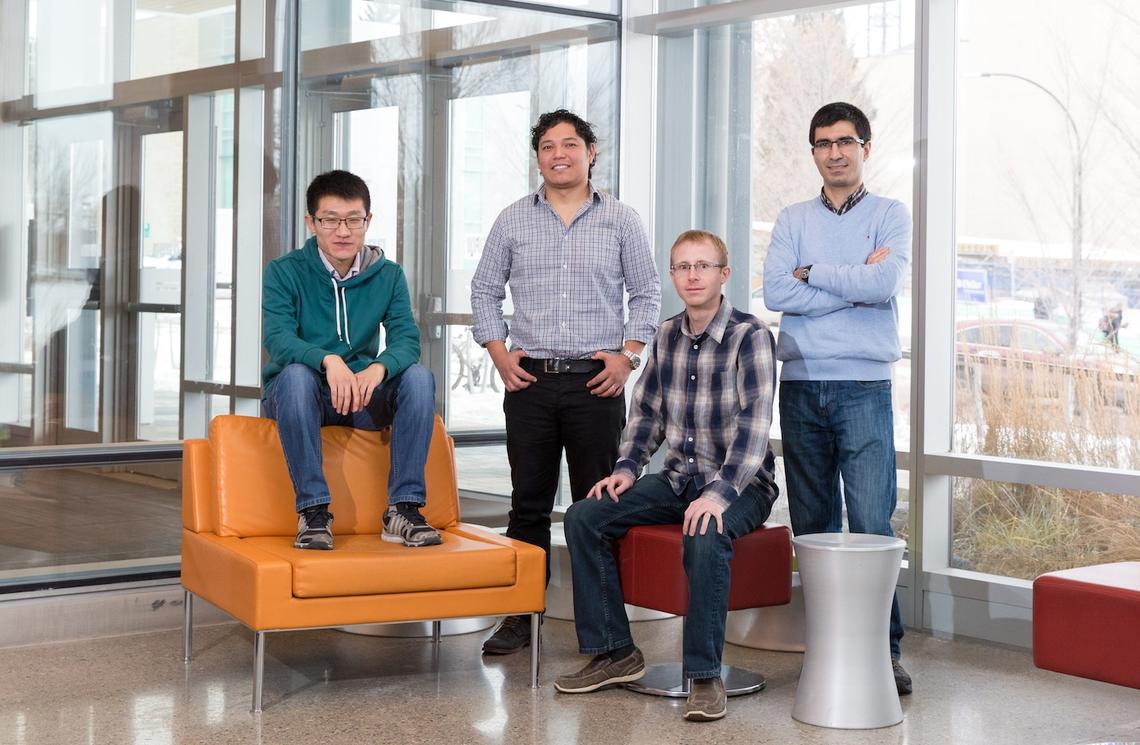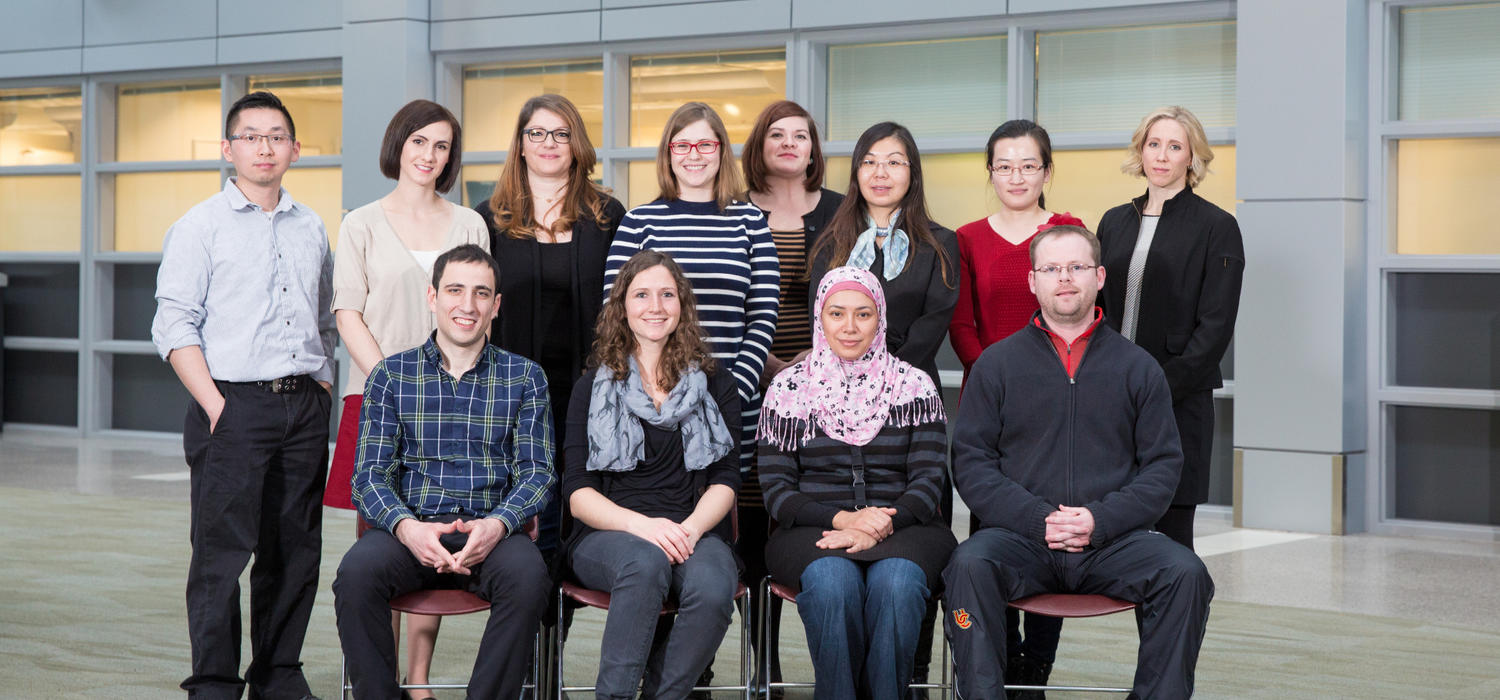
Recipients, from left: Gu Ruo-Xu, Jean-Paul Motta, Ian Smith, and Mohsen Maleki Karyak.
Riley Brandt, University of Calgary
Jan. 27, 2015

Alberta Innovates Health Solutions (AIHS) has announced the results of its 2014 Postgraduate Fellowship Competition and awarded 22 of the 37 fellowships to researchers at the University of Calgary. The fellowship is part of the AIHS Training and Early Career Development Program, which focuses on the development of individual trainees through experience in health research and innovation.
“An increase in recipients of this magnitude is a significant achievement,” says Ed McCauley, vice-president (research). “It speaks to the abilities of these scholars and the promise of their research. We congratulate them, as well as the supervisors who have mentored them on their path to this high level of academic recognition.”
AIHS Postgraduate Fellowship recipients are pictured above; front row, from left: Xavier Waltz, Toni Sterley, Basant Abdulrahman, and Matthew Spencer. Back row, from left: Charlie Hsu, Darren Clark, Emilie Magaud, Lauren Drogos, Jennifer Semrau, Ying Zhu, Kun Shao, and Jillian Beveridge.
Fellowship will fund recipients’ research and help develop skills
Recipient Mohsen Maleki Karyak is honoured to have been selected for the fellowship. Maleki Karyak’s project explores theoretical and experimental models for elasticity and permeability of articular cartilage, supervised by Dr. Walter Herzog in the Faculty of Kinesiology and Salvatore Federico in the Department of Mechanical and Manufacturing Engineering, Schulich School of Engineering. The fellowship will provide funding for research as well as expanded training opportunities.
“At this stage I’m focused on answering fundamental questions about the elasticity and permeability of the tissue itself. We can use the outcome of this research to understand the risk factors and the mechanisms leading to joint diseases such as osteoarthritis," he says. “We can also provide advancements in tissue engineering techniques, which can be used to create engineered materials for repairing or replacing the damaged or diseased tissues in joints.”
Applicants were selected based on their relevant work and/or research experience, career development plans, their training and mentorship environment, and their research proposal. “The fellowship is a great opportunity for me to develop my experience and expose myself to other aspects of biomechanics,” he says. “I hope that at the end I can represent myself as a well-rounded researcher in biomechanics, particularly in soft tissue mechanics.” Maleki Karyak’s research involves the Human Performance Lab in the Faculty of Kinesiology, as well as the Department of Mechanical and Manufacturing Engineering at the Schulich School of Engineering.

Recipients, from left: Gu Ruo-Xu, Jean-Paul Motta, Ian Smith, and Mohsen Maleki Karyak.
Riley Brandt, University of Calgary
Fellowships awarded to scholars across campus
The AIHS supports highly competitive and internationally recognized training awards in the area of health and translational research. The 22 fellowships awarded to scholars from the University of Calgary — twice the number awarded the previous year — are 59 per cent of the total fellowships awarded. The recipients work in the Cumming School of Medicine, the Faculty of Veterinary Medicine, the Faculty of Kinesiology, the Faculty of Science, and Schulich School of Engineering.
“The diversity of disciplines represented speaks to the breadth of expertise in health-care research at our institution,” says McCauley. “Their research discoveries and innovations have the potential to be translated into applications that benefit both local and global communities.”
Fellows receive a stipend of $50,000 per year plus a research allowance of $5,000 annually for a maximum of three years. The net result for the University of Calgary is approximately $3.6 million over three years in support of its postdoctoral fellows.
Following are the recipients of the 2014 competition, together with their sponsoring supervisors (in brackets) and project title:
2014 AIHS Postgraduate Fellows